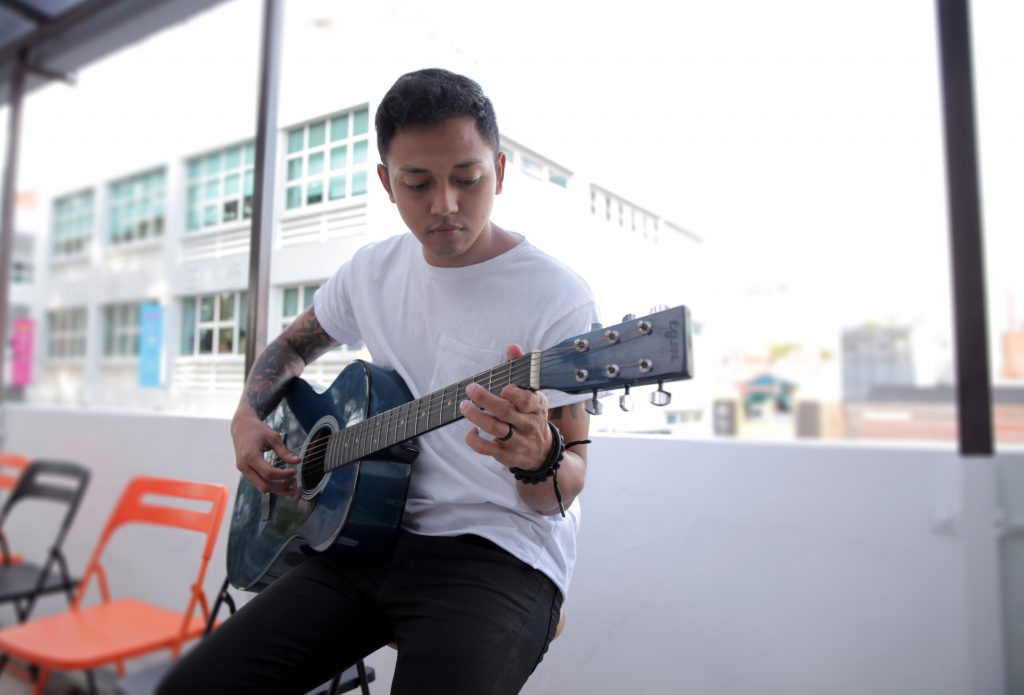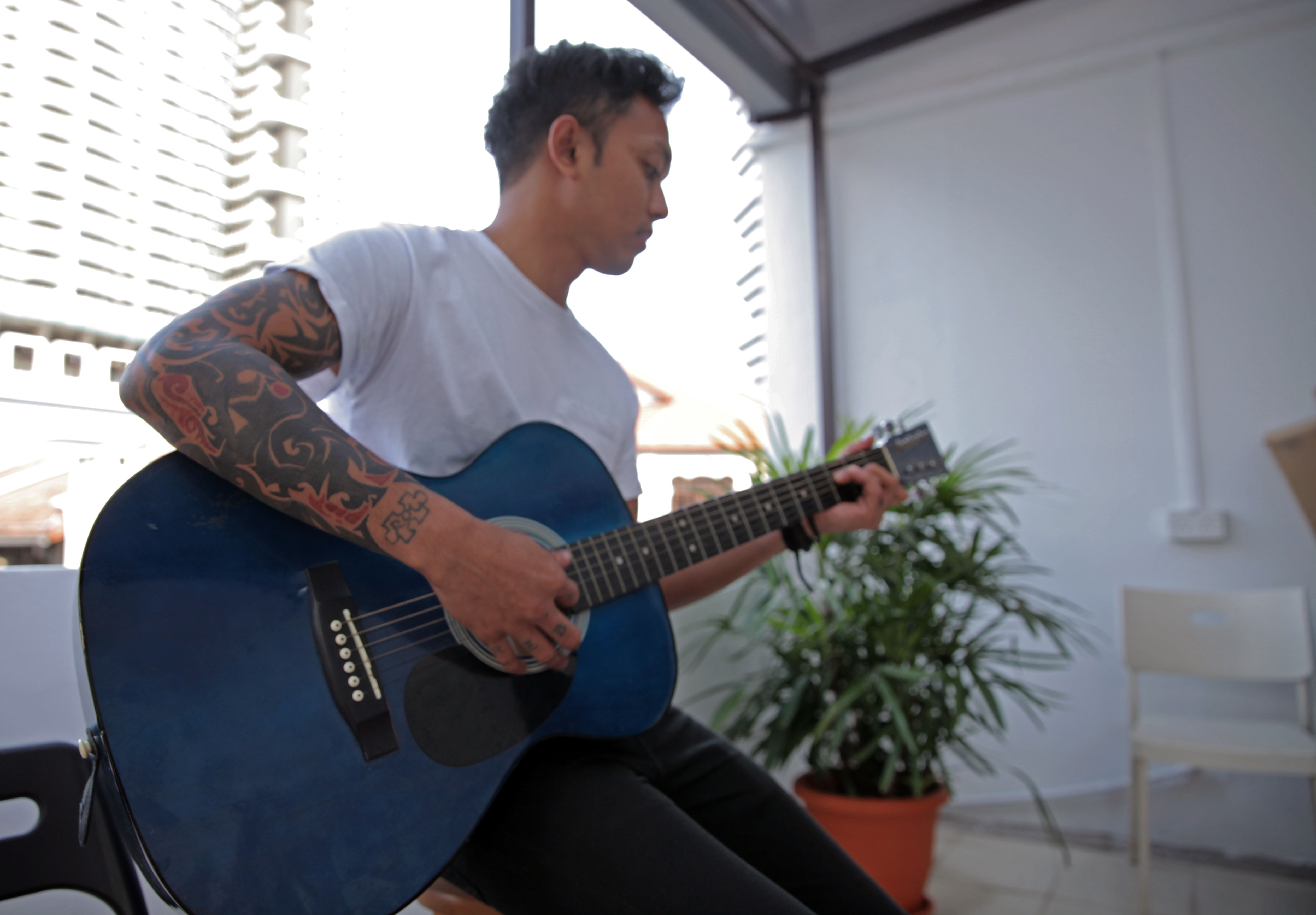For a Singaporean Chinese guy with a long boxed beard and striking green hair tied up into a ponytail, that image alone would warrant antagonistic comments from conservative locals.
What's more, for a Singaporean guy who raps for a living. That’s like a double whammy, in the sense where that would be everything everything our (traditional) parents would have discouraged us against.
In the 90s where most of us grew up in, one would have been an ah beng to sport such a bold look, and crazy to pursue music as a career—as stereotypical as it sounds.
But for 27-year-old Pek Jin Shen, otherwise known as ShiGGa Shay, these are all merely forms of expression.
Before I met ShiGGa, I was like most Singaporeans: I wasn’t particularly a fan of rap music or of him as an artiste. I didn’t dislike him either. But there’s just this impression of him as someone unfriendly, despite having never met him before. His physical appearance and his form of expression as a rapper probably contributed to that air of arrogance he seemed to give off. Though on the other hand, it’s strange if rap and hip hop is cheerful and merry.
This impression is something that ShiGGa has long come to accept, as it isn’t something within his control. Everybody’s got their right to judge, but at least for ShiGGa, he’d rather people have a chat with him before passing him off as arrogant.
“I don’t think I’m better than anyone else, I’m just a human being.”
And to be fair, he was actually pretty chill. It could be that I was an outsider, and a journalist in his eyes, but he was nothing like what I’d perceived him to be when I joined him at Zendyll Productions studios one afternoon, a usual spot where he would work on his music besides his home studio.
In fact, it felt more like a casual gathering of friends coming together to chill (and make music).
I was also treated to a couple of his unreleased works, which includes a collaboration with Korean artiste, Jay Park—set to release later this year.
ShiGGa Shay is also a man of humour. When I asked about his Moniker, he explained that it was an onomatopoeic play on the Chinese words, “是个谁” from “你是个谁,” which translates to mean “who are you”. This came at a time where it was unusual for a Singaporean to do rap.
Being A Lion City Kia
After a 3-year hiatus, ShiGGa recently released his comeback single, Paiseh, in April.
Just like a lot of his other tracks, it is, for lack of a better description, very Singaporean. And it is what got ShiGGa interested in writing rap in the first place. It is a way for him to express the many thoughts he has about Singaporean life.
“Growing up in Singapore, I was just like anyone else. I lived in a HDB and in that environment, I just had a lot I wanted to say but there wasn’t an outlet for me to say what I wanted to say. So I’d just write raps, and rap to kind of express myself.”
Contrarily, he was the only one in his family that’s musically-inclined and used to play the dizi and the trombone in school. Rap and hip hop came about after he heard an Eminem song on the radio. His fascination with the sound of rap songs grew when he dived into the world of Snoop Dogg, Tupac Shakur, and other hip hop artistes of the 90s era.
He was only 9 when he started writing rap. At 14, he performed at his dad’s 55 birthday party, to which he bashfully brushed away when I asked what he rapped about at such a young age.
“I don’t really remember but it’s something… kind of lame,” he laughed.
Mum And Dad Are The Main Motivations For Making Music
In 2009, his dad passed away. It was a pivotal period for ShiGGa as the sadness and trauma from losing his dad could have led him down an entirely different, darker path. However, it became the driving factor that contributed to his career today.
He had always been writing rap, but this time round, music became an avenue for him to express all the negativity he was feeling. More than just as a way for him to cope with the pain of loss, he also wanted to channel all his energy into putting something out there.
Music helped him get through his darkest time, and it was also his wish for his music to be a source of comfort for others going through what he had.
This became a goal that he consistently works towards when he makes his music.
As one of the first few musicians of our generation to have made a name for himself, and possibly the first Singaporean who have made it this far in rap, the challenges he faced are undoubtedly aplenty. There’s also the pressure of living up to expectations as a front runner for rap music in Singapore but for ShiGGa, it’s all a matter of staying true to what he had set out to do.
“Being recognised or known is not really why I did it in the first place. I really did it and am still doing it for the passion of music. And for the fact that I really want to share what I have with the world.”
A true Lion City Kia, many of ShiGGa’s song talks about Singaporean life. Hip hop is a reflection of the current state of society after all, and for ShiGGa, it is both his goal to make locals’ lives a little bit better through his music, and to put the Singapore sound on the world map.
He’s accomplished a lot for a Singaporean self-funded rap artiste, but nothing beats recognition from his mother.
His drive to be successful also comes from the need to take care of his mother. As an only child, ShiGGa has taken it upon himself to provide for her ever since his dad’s passing. His mum has also been his strongest pillar of support in his toughest times.
“I’m very close to my mum. She’s my emotional support, my rock. Everything I do, I do with her in mind.”
Since 2011, he has released several singles and albums, collaborated with many different artistes, and represented Singapore on local and international stages. He even dabbled in acting.
These are all laudable accomplishments but for ShiGGa, nothing beats being a filial son to his mother.
“Accomplishments and all that are external. It’s great being able to represent Singapore at the White House. It’s great performing for NDP. But hearing my mum say she’s proud of me is like the most important thing to me.”
Also read: “You Learn To Roll With The Punches” – A S’porean Millennial On Growing Up With 2 Sisters With Special Needs.
Going Against The Will Of His Only Family
Most of us will have no qualms going against our parents once in awhile because after all, our growing up phase also meant us wanting to ‘live a little’. For Ludfee, things are different, because he never had parents. Ever since his parents left him at the hospital after he was born, his grandparents have been his only family. He never knew who his mother or father were, how they look like, or why they abandoned him, but as I chatted with Ludfee, I deduced that he is someone who chooses to look on the bright side of things. “I wouldn’t wish that things were different. I prefer staying with my grandma actually, because I’ve heard about friends having to face strict curfews and rules from their parents. My grandma isn’t very strict, which I’m grateful for. But she nags about religion.” Making the decision to pursue music wasn’t easy back at home as his grandmother wanted him to take a ‘traditional route’ in business. He wanted to study Digital Audio Video Production, but went for businesses services at ITE College Central in the end so as not to complicate matters at home. Nonetheless, arguments with his grandmother still happen from time to time. “My grandma would always say that my priorities are wrong and that I’m choosing music over religion. It gets tiring to have to argue about this again and again.” Ludfee explained how he has had to forgo events like family dinners or religious gatherings for competition trainings or performance rehearsals. However, he tries to ‘lessen the burden’ as much as possible, like taking up a barista job after secondary school to earn his own keep and to fund his own music pursuits. “My grandma have somewhat of an income as she works at a food stall with her friends. But I want to earn some money for myself and for my music instead of relying on her.”Making It Work
Like all musicians in Singapore, Ludfee knew that it wasn’t going to be an easy route. With a cappella group, That Acappella Group (T.A.G), he has gotten many performance opportunities including singing for our President and also competing in this year's National A Cappella Championships, where they have been crowned the winner and 1st Runner-up in the College Category.

Support Our Local Talents At Voices
Although Ludfee has big dreams of publishing his own music and also sharing his interest as a music teacher in the future, his current goal is getting more publicity and appreciation for his music. Catch Ludfee at Voices – A Festival of Song at Esplanade - Theatres on the Bay this 7 to 9 December, where he will be performing with T.A.G as the lead bass singer, and also tenor and alto with Sticks & Kebab!
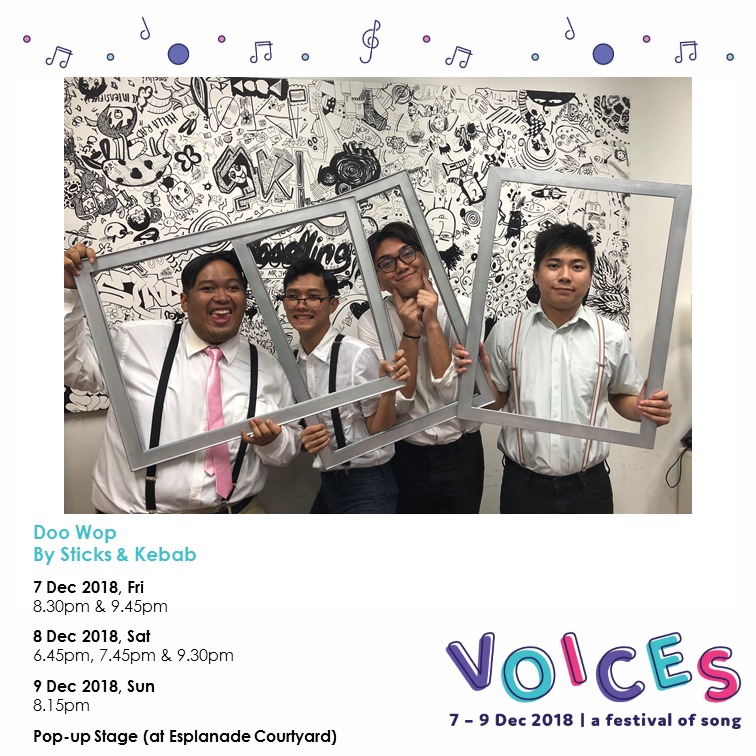

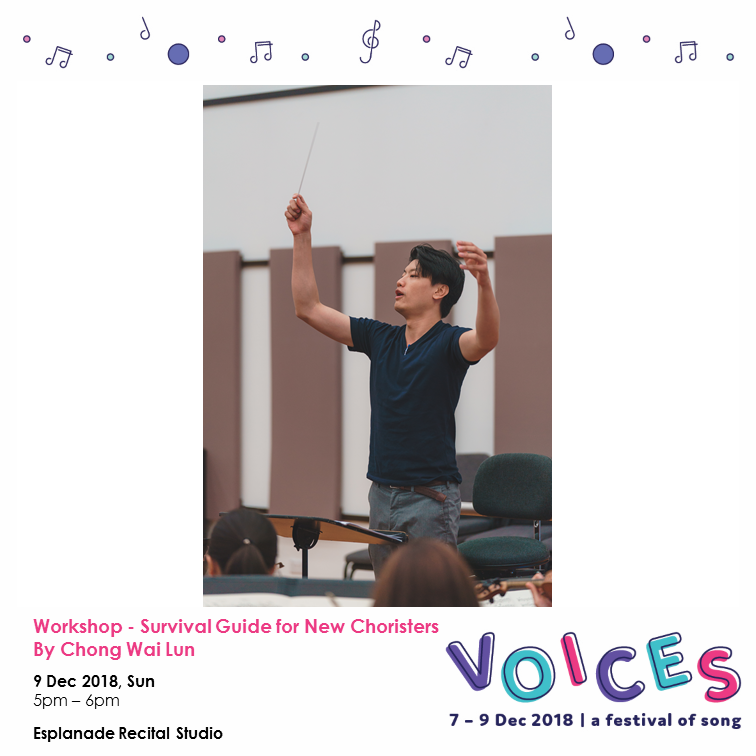
Growing Up In A Different World
Unlike average Singaporeans, Crow never had a proper family growing up. Neither did he really have a home. Home was wherever the person his single mother paid to look after him stayed, for she had to slog day and night to support him and his stepbrother.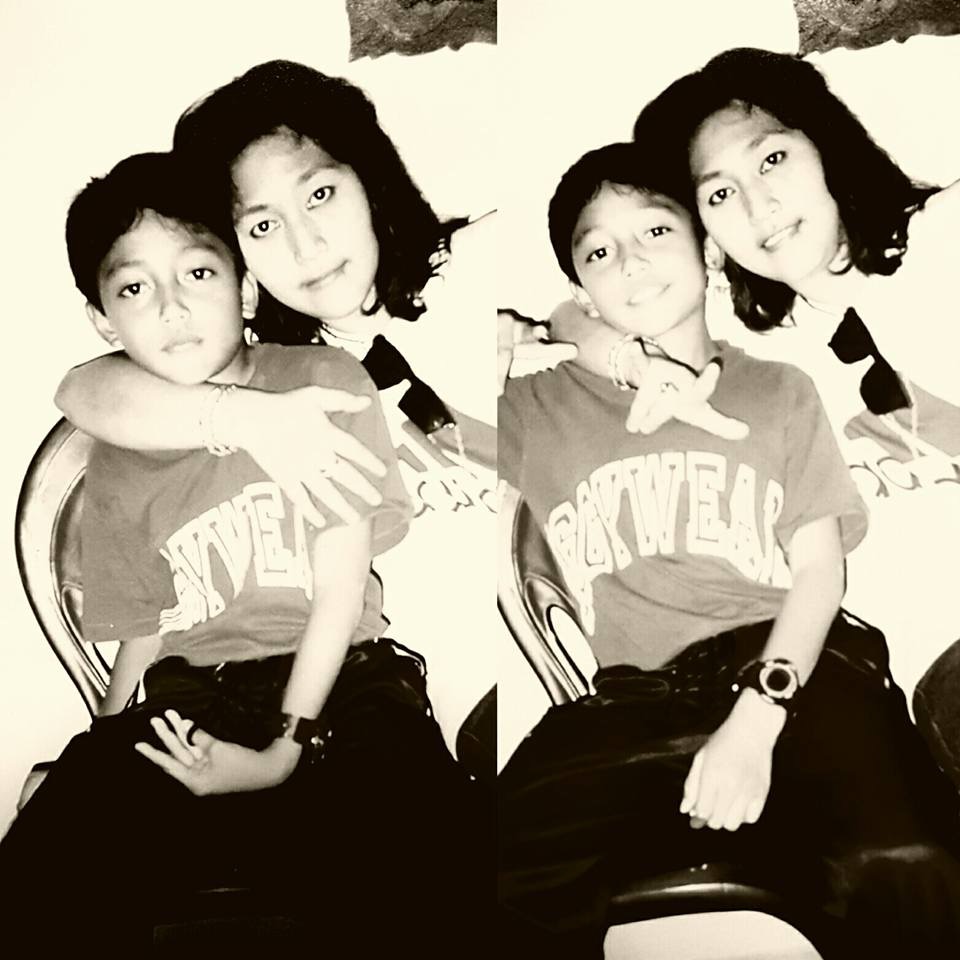
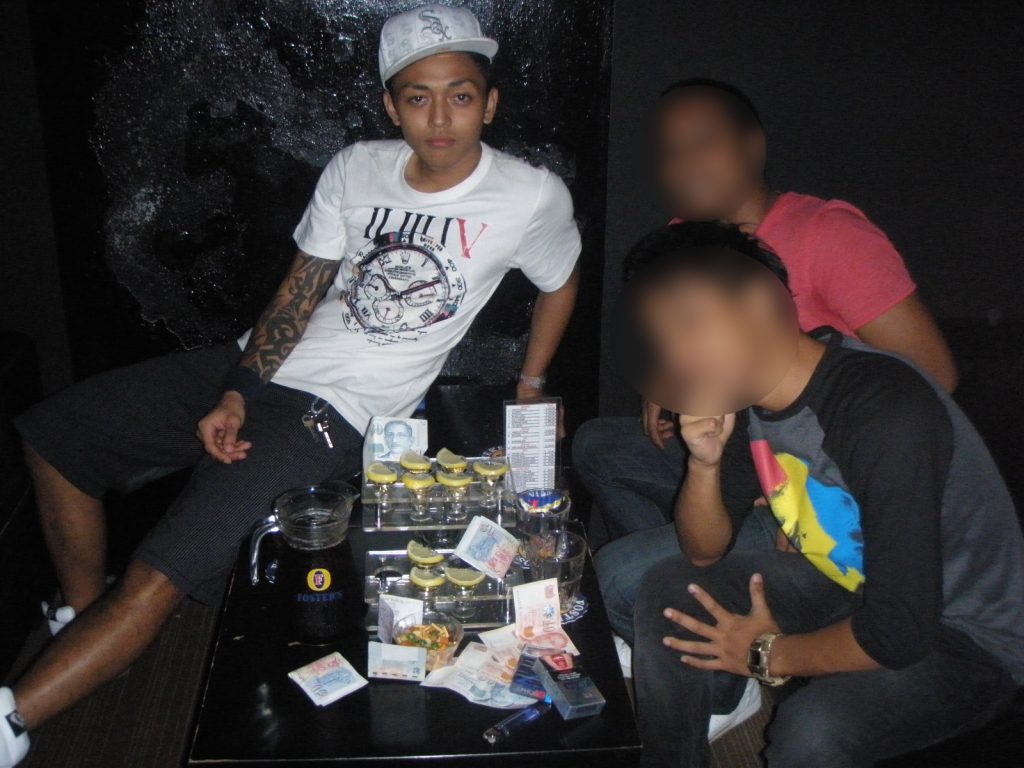
The First Changing Point
Things took a turn when Crow was 19. After surviving from a fight that left him with injuries so bad he was admitted to the ICU, and seeing his crying mother at the foot of his bed, the mother and child reconciled. That moment brought back long lost feelings of love and concern that he had always longed for from her. Their relationship improved but just four months after, she passed away from a sudden illness.“It felt like the world just stopped.”It was at that point that Crow started reflecting and decided to leave the gang. At 19 and serving NS however, it wasn’t long before Crow found himself back in the predicament of going back to his old days due to financial pressures. With $350 of his $520 monthly allowance going towards the rental of his mum’s flat, the remaining was barely enough to cover utilities, food, and transport among other expenses.
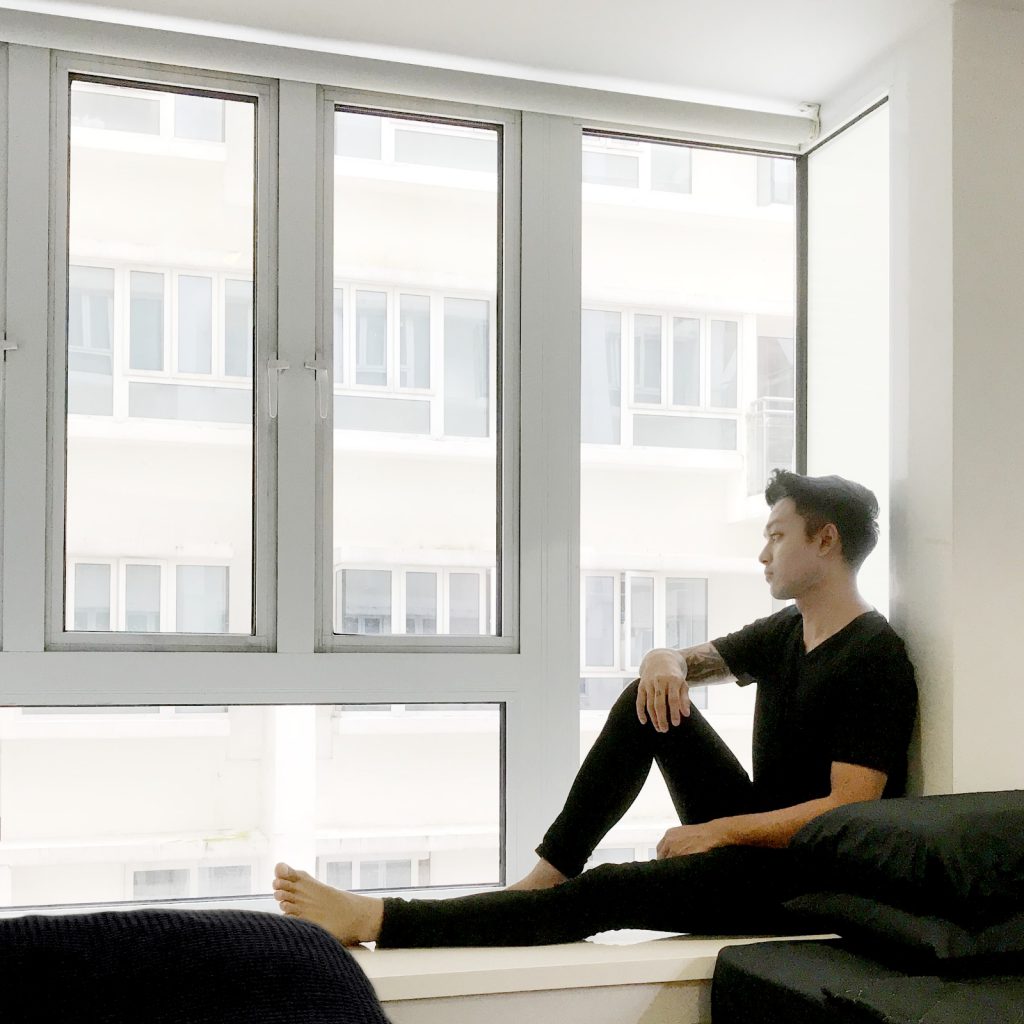 He started selling cigarettes to earn and eventually succumbed to selling drugs when the bills piled up. One thing led to the other and he was soon back in his old gang. This time round, as a headman of a particular territory with over 20 boys under him.
He started selling cigarettes to earn and eventually succumbed to selling drugs when the bills piled up. One thing led to the other and he was soon back in his old gang. This time round, as a headman of a particular territory with over 20 boys under him.
The Law Caught Up
Things started going South when a huge fight left one of his gang members dead. Knowing that the investigations will lead the police to him, he went into hiding at various hotels and friends’ houses. He was caught in the end, along with all his boys when they were celebrating Ramadan back in his rental home. Detained by MHA under the Criminal Law Act and sent to prison immediately with no release date came as a shock to Crow at first.“I knew what I was doing wasn’t right but I never imagined actually being in prison.”Prison life was undoubtedly hard and it took him more than a year to accustom himself to the new life. Facing four walls all day, losing the freedom to do what he wants to do, and having to perform the same routine over and over again was a huge mental challenge. The hardest part, however, is that there was no ‘end date’ to all of that because he did not know when he was going to be released, or whether he was even going to be released. Many times, Crow had to distract himself from such depressing thoughts by doing things he never would have done prior, like reading. Disgruntled by how the legislation could lock anyone up without any release date, he decided to ‘take revenge’, “I was thinking that since they are going to do this to me, fine, I will take full advantage of whatever facilities or resources they have.” Who knew that that motivation was what became the turning point of Crow’s life.
 After getting into Prison School and realising that he could actually do anything well if he puts his mind to it, he went on to complete his O-levels and A-levels there. Most of all, as he was exposed to more knowledge, he begin to realise what he wanted to do when he gets out.
“I want to be a better me, to do good things for myself and for people. If not for myself, I owe it to all my loved ones who have visited me to do so.”
After getting into Prison School and realising that he could actually do anything well if he puts his mind to it, he went on to complete his O-levels and A-levels there. Most of all, as he was exposed to more knowledge, he begin to realise what he wanted to do when he gets out.
“I want to be a better me, to do good things for myself and for people. If not for myself, I owe it to all my loved ones who have visited me to do so.”
Letting Bygones Be Bygones
After six years, Crow finally got his second chance in life. Leaving prison and his past behind in 2016, he decided to use what he experienced and channel his learnings towards touching the lives of people through music.